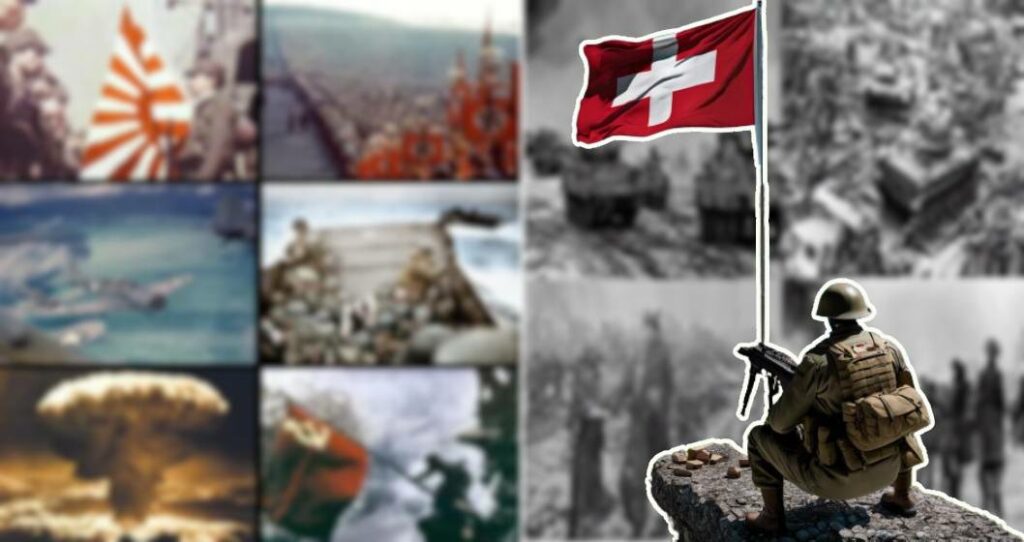Switzerland is a small but powerful nation located in the centre of Europe that is well-known for its neutrality stance and its capacity to mediate disputes between nations. Switzerland’s dedication to diplomacy and peacebuilding is more important than ever in a world where opinions are becoming more divided. This article examines Switzerland’s changing place in the world, stressing its diplomatic tactics, contributions to world peace, and difficulties upholding its neutrality.
A Neutrality Tradition
Switzerland’s neutrality was first acknowledged in writing at the Congress of Vienna in 1815, marking the beginning of the 19th century. Switzerland has been able to stay out of wars and keep peace within its borders because to its policy of neutrality, which entails taking no sides in disputes. Neutrality has shaped Switzerland’s foreign policy and international relations over the ages and is now a fundamental component of the country’s national identity.
Switzerland is actively committed to fostering peace and offering a forum for discussion; its neutrality is not passive. The nation’s function as a host for international organisations and peace negotiations has demonstrated this. Called the “capital of peace,” Geneva is home to the United Nations Officeat the International Red Cross, in Geneva, and at many other international institutions. Due to its standing as a diplomatically neutral location, the city is a sought-after location for talks and peace conferences.
The Diplomatic Approaches of Switzerland
Switzerland places a strong focus on communication, negotiation, and humanitarian endeavours in its diplomatic style. The nation has a long tradition of providing its good offices to settle disputes between belligerents. Due to their training in conflict resolution, Swiss diplomats are frequently asked to lead talks in challenging circumstances.
Swiss mediation is most recognised for its role in the negotiations that resulted in the Joint Comprehensive Plan of Action (JCPOA), the 2015 Iran nuclear deal. Switzerland showed that it could serve as an impartial middleman in high-stakes discussions by hosting multiple rounds of talks between Iran and the P5+1 (the United States, the United Kingdom, France, Russia, China, and Germany).
Switzerland is a major player in the distribution of humanitarian aid in areas of conflict. With operations in many nations, the Swiss Agency for Development and Cooperation (SDC) provides assistance and backs development initiatives. The guiding principles of Switzerland’s humanitarian endeavours are independence, impartiality, and neutrality; this guarantees that aid reaches those in need irrespective of political considerations.

Switzerland’s Role in Promoting World Peace
Switzerland has done more for world peace than only provide aid and diplomacy. The nation is also a fervent supporter of human rights and international law. Switzerland actively participates in international forums including the United Nations, the Organisation for Security and Co-operation in Europe (OSCE), and the International Criminal Court (ICC) and is a signatory to many international treaties and conventions.
Switzerland has assumed a prominent position in promoting disarmament and weapons control in the recent past. The Treaty on the Prohibition of Nuclear Weapons (TPNW), which aims to eradicate nuclear weapons worldwide, has received strong support from the nation. Switzerland’s dedication to disarmament is a reflection of its views on the value of lowering the likelihood of armed conflict and advancing international security.
Furthermore, Switzerland actively participates in international peacebuilding initiatives in a number of different regions. The Swiss government offers technical aid and experience in areas like ceasefire monitoring, constitution-making, and transitional justice in order to support peace processes in nations like Colombia, Myanmar, and Syria. Switzerland emphasises the value of inclusive and collaborative efforts in peacebuilding, frequently working in conjunction with regional and global organisations processes that are driven locally.
Obstacles to Neutrality
Switzerland has a long history of remaining neutral, but in an increasingly complicated world, it is difficult to uphold this position. Geopolitical conflicts, cybercrime, and terrorism are just a few of the new security challenges that have forced Switzerland to change its foreign policy. The nation is still dedicated to maintaining its neutrality, but in order to uphold its values, it must carefully negotiate these difficulties.
The current conflict in Ukraine is one of these challenges. Switzerland has volunteered to negotiate a settlement between the parties to the crisis and has been actively involved in humanitarian assistance in Ukraine. But the crisis has also made people wonder how far neutrality may go, especially in light of transgressions of international law. The decision by Switzerland to impose sanctions on Russia has generated discussion inside the nation regarding the consequences for its neutral status.
Switzerland’s relationship with the European Union (EU) presents another challenge. Switzerland maintains strong political and economic ties to the EU despite not being a member of the organisation. The Swiss government has to strike a compromise between maintaining its independence in foreign policy topics and cooperating with the EU. This delicate balancing effort has grown more challenging as the EU adopts a more forceful posture on matters like defence and security.


